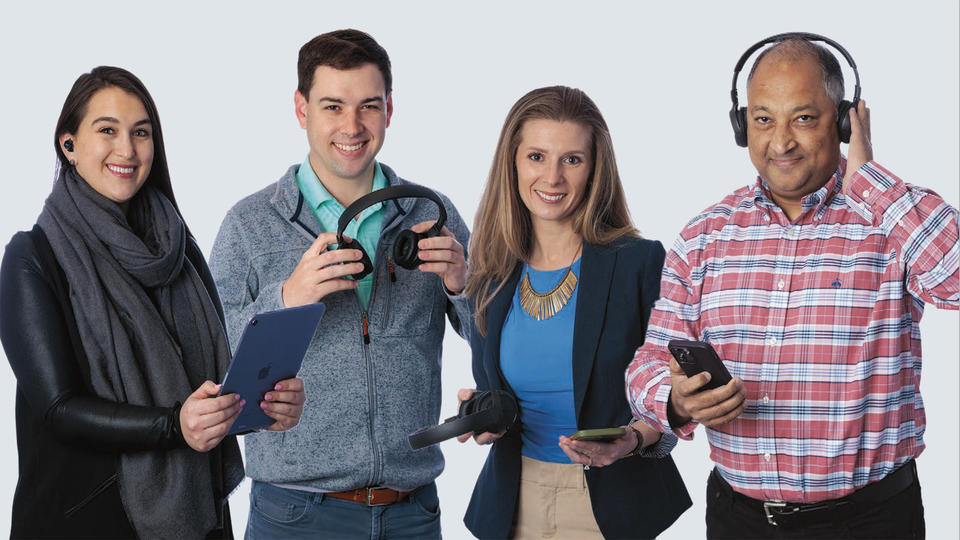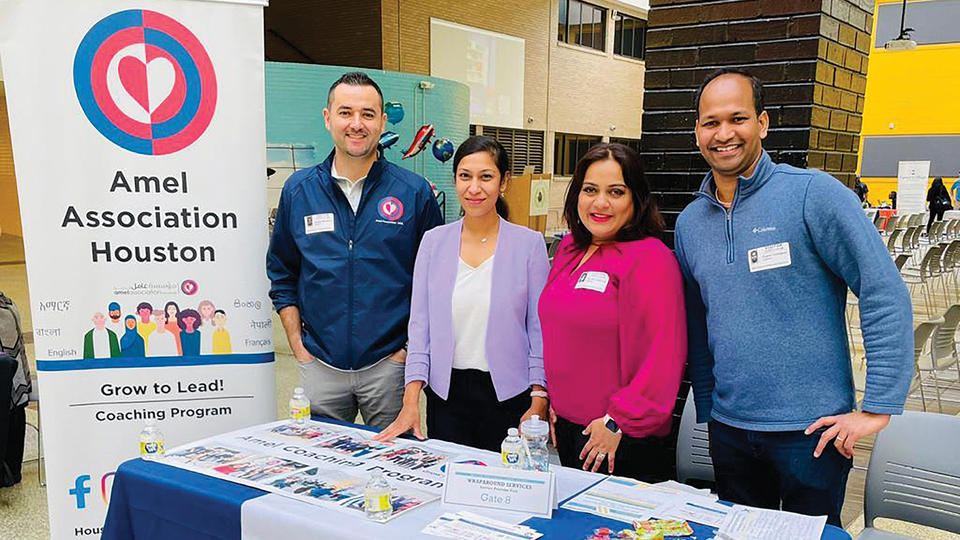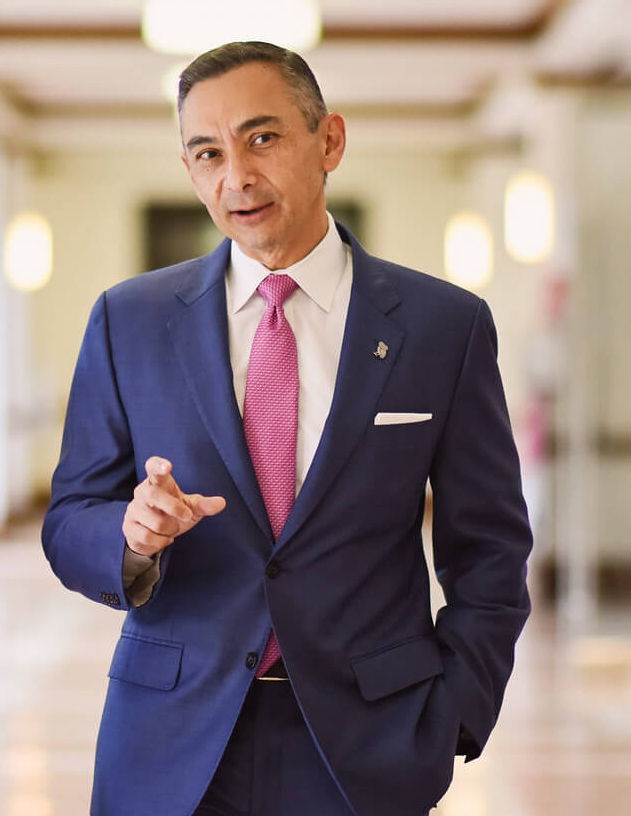
The Best Of Both Worlds
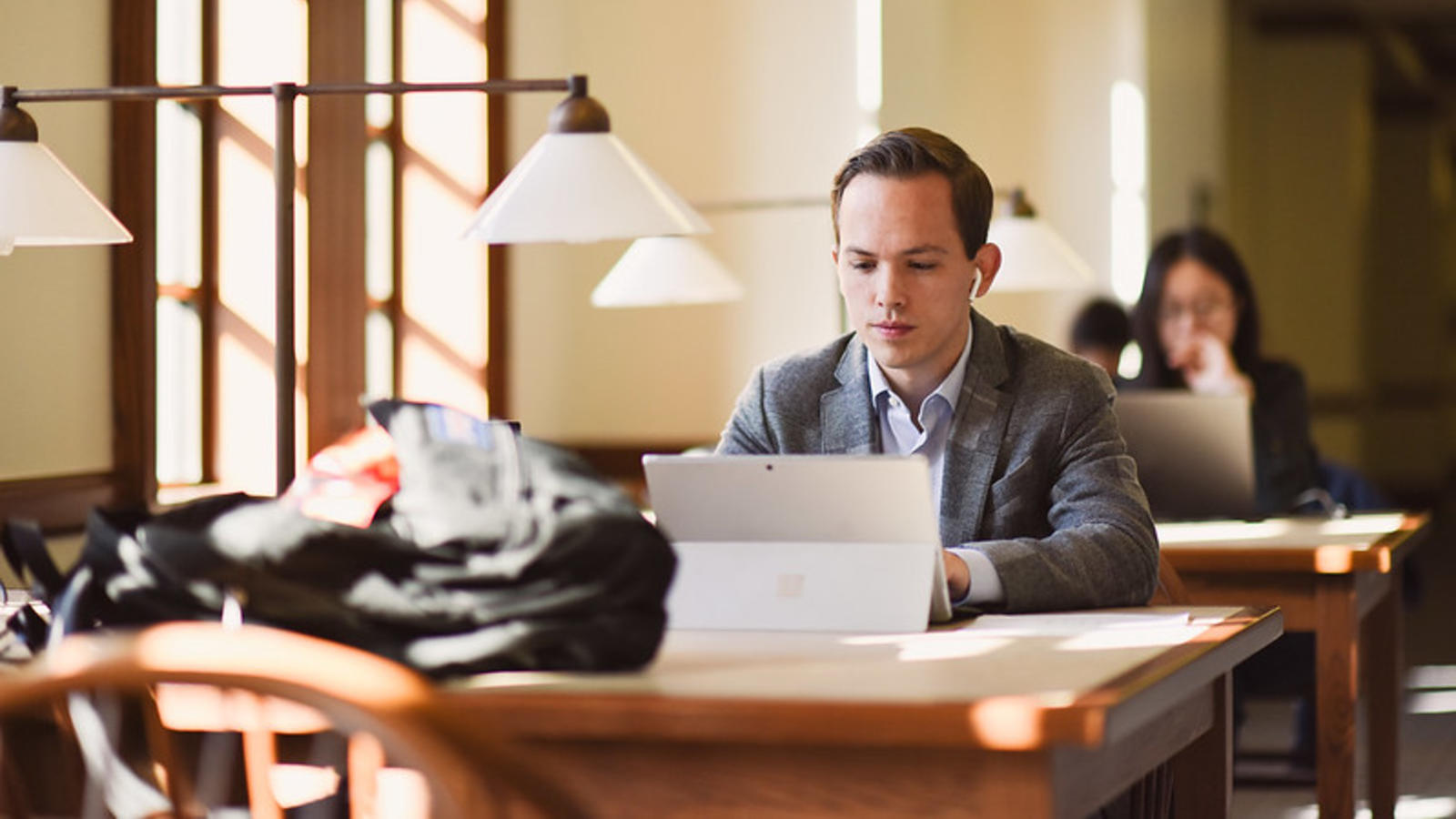
In July, Rice Business will welcome its first cohort of students to the newly launched Hybrid MBA program. Dean Peter Rodriguez discusses the decision to build the program — and why the market was ripe for it at Rice.
Professionals seeking an MBA appreciate and value in-person instruction but require flexibility to accommodate work schedules, travel and family life. “Our charge, and our challenge, was to figure out how to balance those often opposite desires,” says Peter Rodriguez, dean of Rice Business. “We knew that Rice could provide high-quality remote education and high-quality in-person instruction through a new Hybrid MBA program.”
The Rice Business Hybrid MBA, the first of its kind at the university and in the state of Texas, is a 22-month, 54-credit program that begins with a weeklong in-person immersion. After that, classes meet once per month on campus, and in the weeks between, they meet online. Tuition includes residence at a hotel close to campus to help foster connections with peers and faculty while students work and study in McNair Hall.
Rodriguez recently spoke with us about the Hybrid MBA program, how it will expand our impact both nationally and regionally, and the value of networking across professions and MBA programs.
Hybrid MBA
a Q&A with the Dean

What made this the right time to launch the Hybrid MBA program?
It’s the right time because people have adapted to the great work-from-home experiment, which coincided with the great online education experiment during the Covid-19 pandemic. What we learned is how many students would benefit from and enjoy a hybrid program. We also knew we could deliver it very well and thought it would help us adapt to the market. People have much more flexibility in being able to work wherever they want. One hypothesis is that they would be even more interested in a face-to-face traditional education, but the truth is they want a little bit of flexibility everywhere, and that includes their education. What we learned from Covid and from extensive market research is that a once-per-month program — with online delivery in the weeks between — would be a great combination to add to our portfolio of programs and help us reach more students outside of the Houston region.
When it came to designing this program, what lessons did you take from the great work-from-home and online education experiments?
One of the things we learned — and it’s not just from that experiment, but also from our fully online program that launched in 2018 — is that people highly value face-to-face, in-person meetings. But it’s difficult for a lot of our target population to be present in those meetings. Our new program has all the online components, which can be live or asynchronous, on Thursday evenings. It’s outside of working hours, and it’s only one evening, so people can pace their week and set aside time. One of the questions we had was, “who’s going to be most attracted to this program?” and our early hypothesis was that it would be students who live far away from the Rice campus. But we also found that work schedules are a challenge, even for people who live within a few miles of campus, so the idea was appealing to local students as well.
How does this program position Rice in the national business school landscape?
One of the things that makes you more visible in the national landscape is having student populations from lots of different geographies and many industries. Being able to reach more students who are part of the expansion of high-tech and software-related jobs in Austin, or part of the diverse manufacturing and service economy in Dallas, will help us. We’ve also had students from Mexico and from across the U.S. inquire. In the MBA@Rice program, we have students from Boston, Los Angeles, New York and other cities in the U.S. That has added to the quality of discussions we have and to the geographic expansion of the Rice Business network. I think that will help us to serve existing students in our other programs because there will be alumni and other students that they can connect with in these vibrant commercial centers, and not just in Houston. Working professionals bring contemporary problem sets from the organizations they work in, and we’ll be able to bring in students with those experiences from great organizations around the country and the big metro areas of Texas.
The program emphasizes the two weeklong immersion opportunities on campus and the opportunity to participate in the Professional MBA-Weekend electives. What makes those immersive weeks a core part of the program?
What we find is that some really special things happen when you spend more than 48 hours together. The weeklong immersions and the Professional Weekend MBA electives get people much more closely associated and comfortable as they learn more from each other, and they set the groundwork for having deeper discussions. That kind of connection enriches everyone’s education. It’s important to share meals together, to share ideas between class and down time together, to share study time together, and to be removed from some of the challenges of our daily lives. It’s also important for them to do that with our faculty.
So much of professional life is about making those face-to- face connections.
You’re 100% right. In our lives, we meet a lot of people who do what we also do. It’s harder for engineers to know physicians and salespeople and people working for not-for-profits.
We just don’t intersect as often with people outside of our own industries. Intentionally creating those new connections is valuable to our students and helps deepen their understanding of global business.
The program ends with the weeklong Global Field Experience opportunity. What kind of benefits do students get from that week out in the field?
A component of any high-quality business education is the ability to work in national and global contexts other than your own. It isn’t that business principles don’t cross borders well. Most of them do, but the context in which businesses conduct them and the values that people have across different cultures vary. A lot of the ways we think about problems and issues exist within our own culture and environment. What we want to do is ensure that every student has a chance to test those assumptions and see where they no longer hold true or how they’re challenged by an environment that’s highly relevant but may be very different than their own.
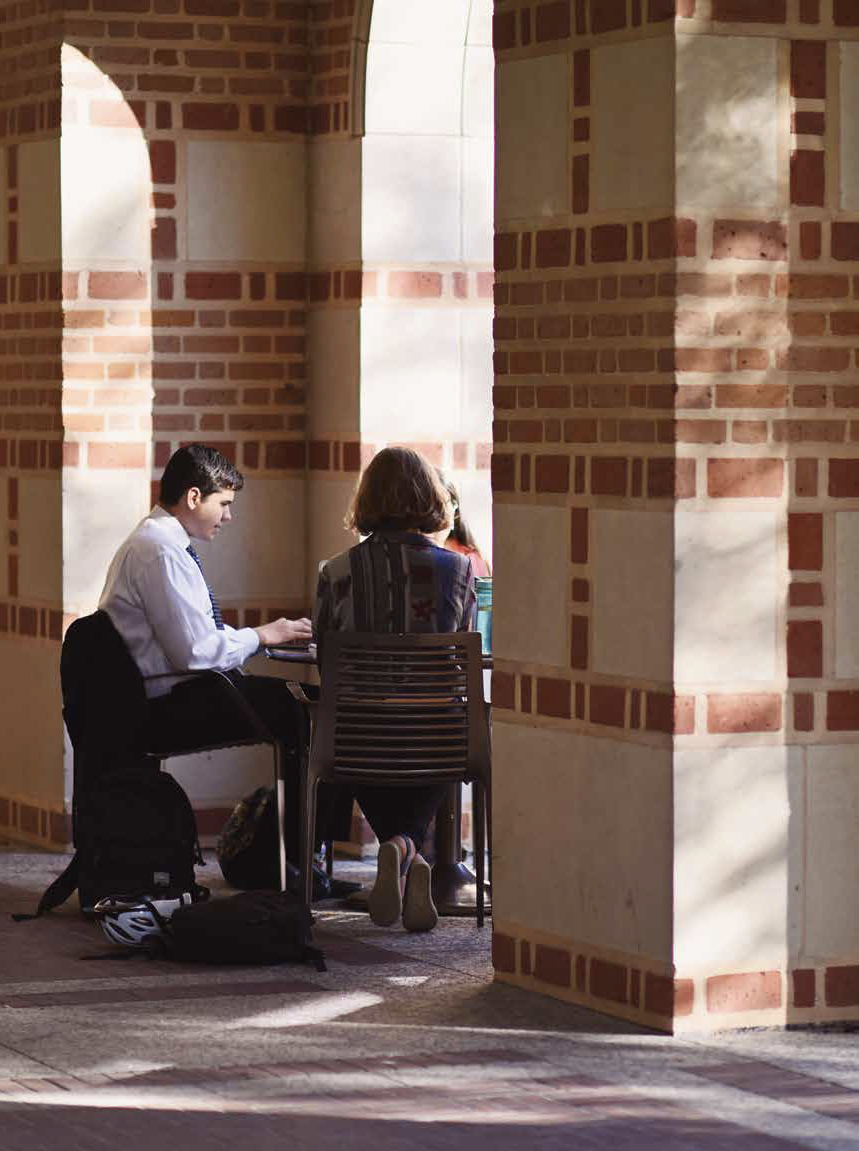
In terms of the curriculum, are there any plans to adapt it or introduce new elements specific to the Hybrid MBA program?
We plan to introduce new elements, but they’ll be available to both the Hybrid MBA and weekend MBA programs. We will be delivering the in-person portion of this program on the same weekends as our existing weekend programs so that we can give both groups of students more electives. We’re offering some new energy transition electives that focus on decarbonization and optimizing the use of different energy sources, particularly renewables, in operations, as well as electives related to the business of health care.
What are you hearing in terms of feedback so far from applicants or people who are interested? What’s the buzz that’s building around the program?
There’s some really positive early buzz. Within one month of the program’s launch, we received hundreds of requests for further information. Applications have started coming in, and for the most part, they seem to be students who were not already planning to come to Rice. We have a newer audience that we had not reached previously. For example, we’re hearing more from medical professionals interested in the program and from prospective students in other cities.
What most excites you, personally, about the Hybrid MBA?
I’m most interested in reaching students whom we have missed before — students who have not been able to take part in a Rice Business education. We have some students who live in Houston, but they often have to work for extended periods far away. Sometimes that’s just in Midland or Odessa, but it could also be the Middle East, and they’ve also expressed an interest in the program. This flexibility means that even if their life changes during the two years of the program, they should still be able to participate fully.
I’m excited about what it will do to our weekend offerings in general. We will have a very broad, diverse group of people from many areas participating at Rice, and that’s exciting. Not long ago, our reach was quite good, but it was relatively narrow geographically. Now we can really expand. I’m excited about the students and the organizations they represent. I’m excited about the ways it will help our faculty become even better teachers. Students and faculty will get to have conversations with people who think about problems from different vantage points — and that will be wonderful for the Rice Business community at large.

